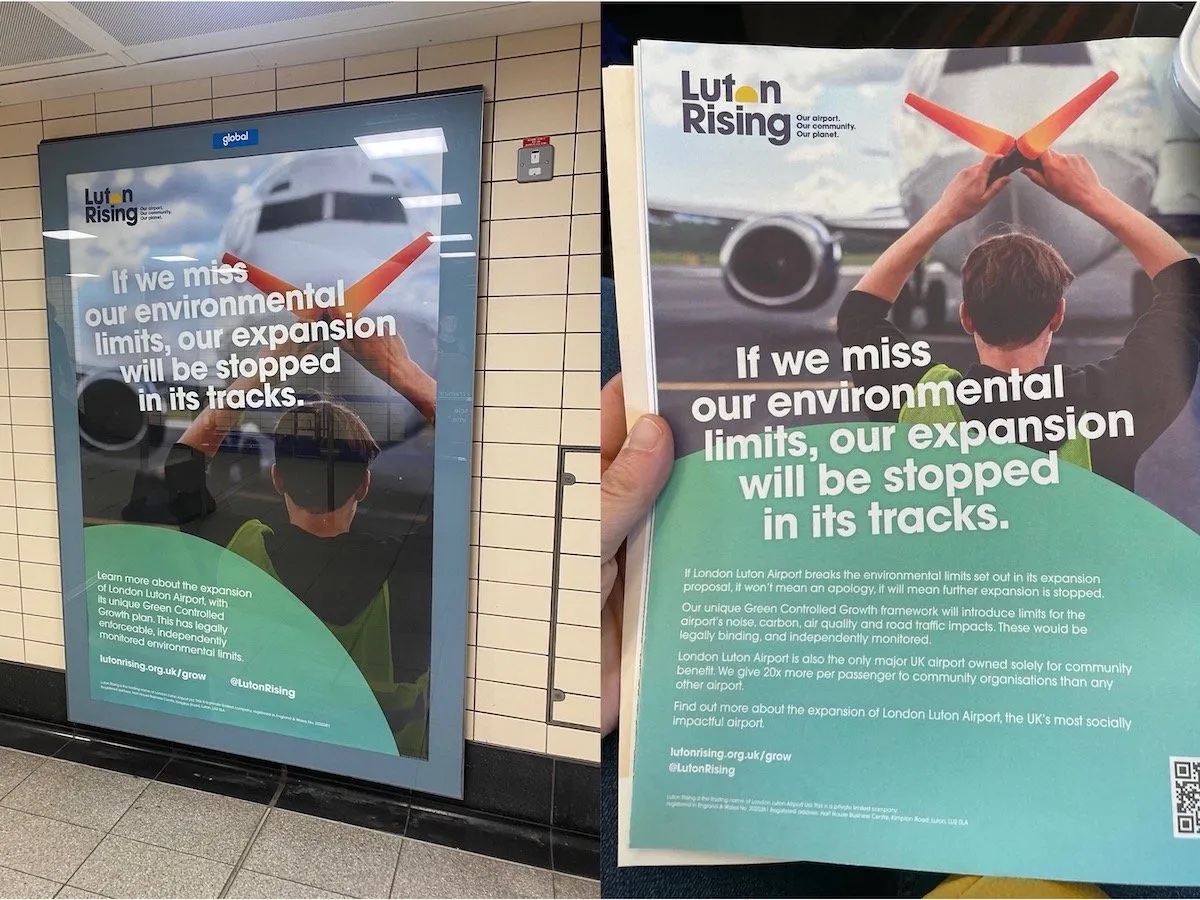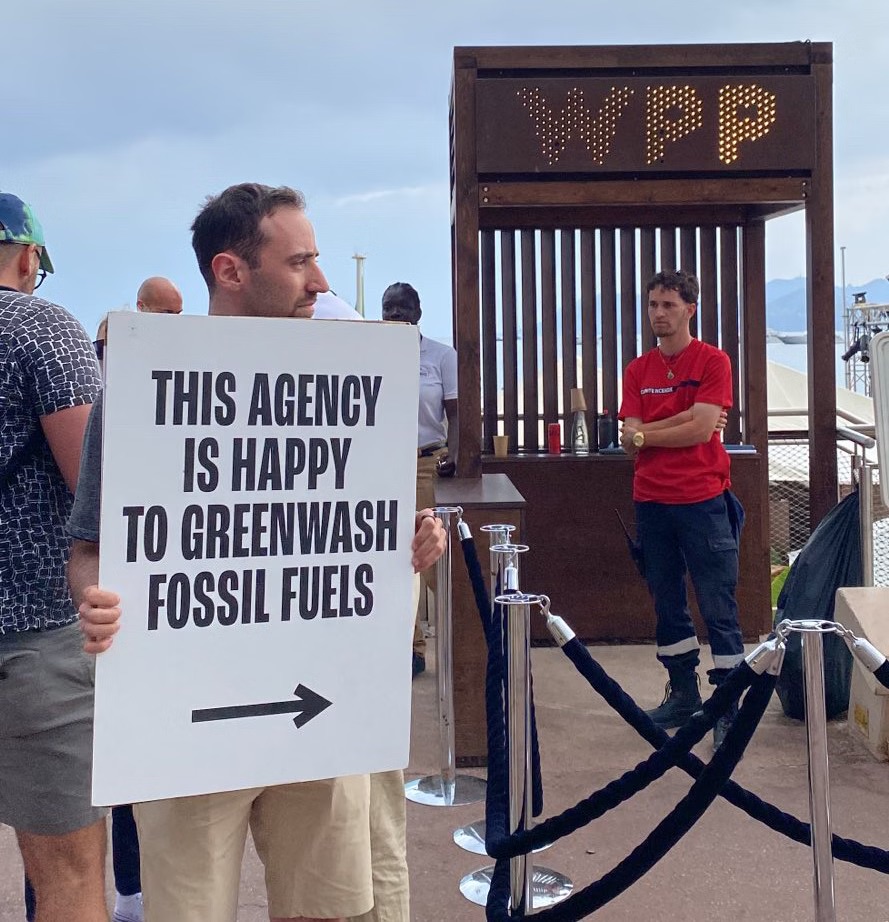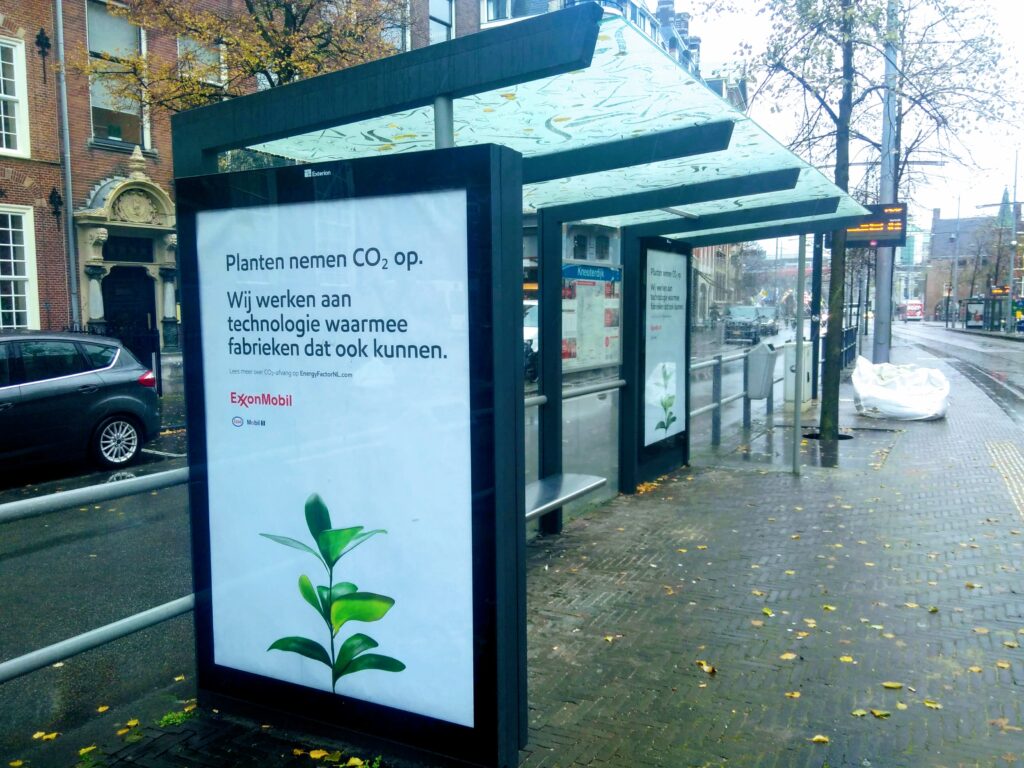Eight climate groups have asked the UK advertising watchdog to assess whether environmental claims in recent Luton Airport ads are misleading the public.
In the complaint, filed with the Advertising Standards Authority (ASA) in April, Ad Free Cities, Badvertising, Stay Grounded and other organizations contend that the adverts omit key information regarding the airport’s significant environmental harms.
The ads state that the proposed expansion of Luton Airport would be “stopped in its tracks” if it misses its “environmental limits”. However, the groups have charged, this claim does not account for what consumers would reasonably expect to be the airport’s main climate impact: additional carbon pollution from increased flights.
The adverts appeared in the New Statesman in March 2024, and on billboard posters in London train stations in April 2024. They were accompanied by a Facebook campaign which the platform later removed for breaching its disclaimer guidelines.
The ASA confirmed with DeSmog that it has received the complaint and intends to review it.
The London-based ad agency Hope, which created the campaign, features the adverts in a case study on its website. Hope’s campaign rebrands the airport’s business name from “London Luton Airport Ltd” to “Luton Rising,” alongside a new tagline, “Our airport. Our community. Our planet.” Which, according to the case study, reflects the airport’s “community ethos as well as its far-reaching environmental commitments”. Luton Rising’s sole shareholder is Luton Council.

In response to DeSmog’s request for comment, a spokesperson for Luton Rising defended the campaign, saying “the claims and facts in the advertisements were thoroughly checked before the campaign launched. Luton Rising would never intentionally run a false or misleading advertisement.”
The spokesperson stated that it would not expand the airport if doing so “would lead to a breach of the environmental thresholds laid out in our green controlled growth framework.”
Luton Rising also stated that its response was a joint statement with Hope, which did not respond independently to DeSmog’s request for comment.
In the complaint, the groups also contend that the ad campaign, which is running as Luton’s expansion application enters its final stages, could inject disinformation into the outcome of the lengthy consultation.
“Luton Airport’s greenwashing adverts justify its expansion on a totally false premise of environmental responsibility, using ‘green’ language and completely failing to mention the huge climate impacts of millions of additional flights,” said Hannah Lawrence, a campaigner from Stay Grounded.
“We hope the ASA will rule against these ads promptly,” she said, “but verdicts against adverts that people have already seen is too little, too late.”
If approved, the expansion will see Luton’s annual passenger cap jump from around 18 million to 32 million passengers. The airport has claimed this growth would not interfere with its goal of net zero emissions from its ground operations by 2030. But that target does not account for pollution from either current or increased numbers of flights.
When it advised the UK government on meeting its net zero by 2050 goals, the Climate Change Committee recommended against any airport expansions in the UK until better measures exist to control the greenhouse gas emissions of the sector, such as the development of more sustainable aviation fuels.
Aviation industry advertising has been a frequent target of greenwashing complaints. In 2023, the ASA ruled that ads by Etihad, KLM, and Lufthansa were misleading on environmental grounds. In the Etihad ruling, the regulator noted that the aviation company currently has no projects or technologies in operation to justify advertising claims of climate-friendly airline travel.
Subscribe to our newsletter
Stay up to date with DeSmog news and alerts







